Husky puppies eat a diet that is rich in protein, fats, and essential nutrients for their growth and development.
| Age when puppies start eating solid food | 3 to 4 weeks old |
|---|---|
| Types of food | Puppy-specific kibble, wet food, raw diet |
| Feeding frequency for puppies under 3 months | 4 to 5 times a day |
| Transition to adult food | Generally starts at 12 months |
| Protein content in puppy food | Approximately 22-32% |
| Fat content in puppy food | Approximately 10-25% |
| Water consumption | About one-half cup of water every two hours |
| Caloric requirement for puppies | Up to twice the adult requirement per pound of body weight |
| Calcium-to-phosphorus ratio | Ideal ratio is between 1:1 and 1.2:1 |
| Not recommended foods | Chocolates, grapes, onions, avocados, and foods with xylitol |
What do husky puppies eat
Husky puppies should be fed a high-quality puppy food that is specifically formulated for their breed size. Choose a food that has a good balance of protein, fat, and carbohydrates to support their growth and energy needs.
You can also supplement their diet with small amounts of lean meats, fruits, and vegetables, but it’s important to consult with a veterinarian to ensure their dietary needs are being met. Additionally, always provide plenty of fresh water for your husky puppy.
To delve deeper into the specific dietary needs of Siberian Husky puppies and ensure your furry friend grows up healthy and strong, continue reading our detailed guide. Discover the optimal nutritional choices for your puppy by visiting What To Feed A Siberian Husky Puppy.

Understanding Puppy Food Formulations
What do husky puppies eat
Husky puppies have specific dietary needs that require careful consideration when selecting the right food formulations. Understanding what husky puppies eat involves an exploration of various options, including dry kibble, wet food, and raw diets, all of which play a crucial role in their growth and development. Husky puppies can thrive on high-quality dry kibble specially formulated for their nutritional requirements.
This convenient option provides a well-balanced diet and supports their dental health. Additionally, wet food can be a suitable choice as it offers hydration benefits and may be more palatable for picky eaters.
Care should be taken to select wet food with high-quality protein sources and essential nutrients to meet a husky puppy’s needs. Moreover, some husky puppy owners opt for raw diets, which can closely mimic the natural diet of their wolf ancestors. Carefully crafted raw diets can provide the necessary nutrients for husky puppies, including protein and healthy fats.
However, it’s essential to consult a veterinarian or a canine nutrition specialist before transitioning a husky puppy to a raw diet to ensure that all nutritional requirements are met. In summary, understanding husky puppy food formulations involves weighing the benefits of dry kibble, wet food, and raw diets while considering the specific needs of these energetic and growing pups. Each formulation has its advantages, and the suitability may vary based on individual husky puppies and their unique dietary requirements..
After considering the tailored nutrition needs for your husky puppy, it's equally important to understand their playtime requirements for optimal health and development. Discover engaging activities and play routines for your husky companion by visiting Engaging Playtime for Huskies.
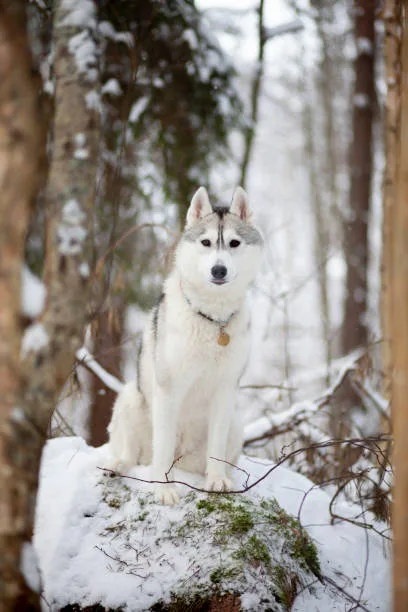
Scheduling Feeding Times for Your Husky Puppy
What do husky puppies eat
Creating a feeding schedule for your husky puppy is essential to support their developmental stages and overall health. Puppies typically require more frequent meals than adult dogs, so establishing a consistent schedule is crucial.
It’s recommended to feed your husky puppy three to four times a day, spacing out their meals to prevent overeating and promote proper digestion. This schedule not only helps in portion control but also ensures that your puppy receives a steady supply of energy throughout the day.
As your husky puppy grows, you can gradually adjust the feeding times and portion sizes to accommodate their changing needs. Additionally, be mindful of the timing of meals in relation to other activities such as playtime and rest, as this can influence their digestion and energy levels.
By adhering to a well-structured feeding schedule, you can help your husky puppy maintain a healthy weight and support their overall well-being.
Understanding your husky pup's dietary needs is crucial, but there may be times when their eating schedule is disrupted. Discover strategies for managing your furry friend's nutritional health during unexpected breaks in their routine by exploring our in-depth guide on the resilience of huskies' feeding schedules.

Portion Sizes and Measuring Puppy Food
When it comes to ensuring the health and well-being of your husky puppy, it’s essential to carefully manage their portion sizes and measure their food accurately. Husky puppies have unique nutritional needs that evolve as they grow, so it’s crucial to tailor their portion sizes to their age and size.
What do husky puppies eat is an important consideration, as overfeeding can lead to obesity, which can have detrimental effects on their overall health.
Measure out the appropriate amount of high-quality puppy food according to the feeding guidelines provided by reputable brands or your veterinarian. It’s important to factor in your puppy’s activity level, metabolism, and any individual dietary requirements when determining portion sizes.
Furthermore, as husky puppies mature at a relatively rapid pace, their portion sizes will need to be adjusted regularly.
Keep an eye on your pup’s body condition and growth rate, and be prepared to modify their portion sizes accordingly. Regularly measuring and adjusting their food intake plays a significant role in preventing obesity and promoting optimal growth and development.
- Consult your veterinarian: It’s always advisable to consult your veterinarian for personalized advice on portion sizes based on your husky puppy’s specific needs and growth trajectory.
- Use a measuring cup: Employ a designated measuring cup for your puppy’s food to accurately portion out their meals, ensuring they receive the right amount of nutrition without overeating.
- Monitor treats and extras: Be mindful of treats and extras in your puppy’s diet, as these should be factored into their overall food intake to maintain a healthy balance.
By being attentive to portion sizes and measuring your husky puppy’s food meticulously, you can help maintain their ideal body condition and set them up for a healthy future.
Properly measuring your husky puppy's meals is key to ensuring a healthy growth trajectory and preventing obesity. Learn further about the milestones in your husky's development, including the timing of coat changes, by exploring our detailed article, "Understanding Your Husky's Shedding Cycle."
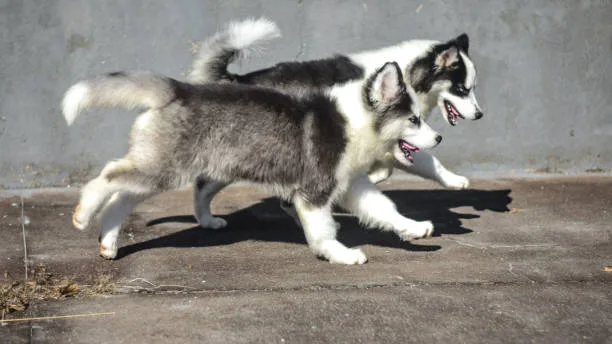
Nutrients Essential for Husky Puppy Health
Husky puppies require a well-balanced diet to support their overall health and development. What do husky puppies eat are key nutrients like protein, which is essential for muscle growth and repair, as well as for maintaining a healthy coat.
Additionally, fat is an important energy source for husky puppies, aiding in the absorption of fat-soluble vitamins and contributing to healthy skin and a glossy coat. Adequate calcium intake is crucial for the development of strong bones and teeth in growing husky puppies.
DHA, an omega-3 fatty acid, plays a vital role in supporting cognitive development and improving overall brain function in husky puppies. Ensuring that their diet includes these essential nutrients in appropriate amounts is fundamental in promoting optimal bone health, cognitive function, and overall well-being in husky puppies.
To summarize, husky puppies need a diet rich in protein for muscle and coat health, fat for energy and skin health, calcium for strong bones and teeth, and DHA for cognitive development and overall brain function.
To ensure your husky puppy not only grows healthy but also well-behaved, complementing nutrition with proper training is key. Explore our comprehensive guide on training a German Shepherd Husky mix puppy to help your furry friend become the best companion.

The Role of Hydration in a Husky Puppy's Diet
Husky puppies, like all dogs, require proper hydration to support their overall health and well-being. What do husky puppies eat becomes significant not only in terms of food but also in terms of water intake.
Fresh, clean water should be made available to husky puppies at all times to prevent dehydration, especially during hot weather or after physical activity. Monitoring their water intake is essential to ensure they are sufficiently hydrated, as their needs may vary based on their size, activity level, and the climate they are in.
By paying attention to their water consumption and providing access to clean water, husky puppy owners can help maintain their pets’ hydration and support their overall health.
For an in-depth exploration of husky care, including their exercise needs which go hand in hand with proper hydration, visit "Husky Exercise Essentials." Understanding their activity demands is vital for overall health and complements a well-hydrated lifestyle. Exercise Requirements for Huskies.

Transitioning to Adult Food: When and How
On Quora about: What do husky puppies eat
Husky puppies should transition to adult dog food gradually when they reach certain developmental milestones. Typically, this occurs around the age of 12 months, but individual growth rates may vary.
It’s essential to observe signs of physical maturity, such as reaching close to their full-grown size and weight, before considering a shift in their diet. Additionally, monitor their energy levels and overall health to ensure they are ready for the transition.
When making the switch, start by mixing small amounts of adult food into their puppy food, gradually increasing the proportion over a period of 7-10 days. This slow integration helps prevent digestive upset and allows the puppy to adjust to the new food easily.
It’s important to consult a veterinarian to determine the best timing and approach for transitioning your husky puppy to adult food, as their individual health and nutritional needs should be taken into consideration. Remember, a smooth transition is key to maintaining your husky’s digestive health and overall well-being..
To explore another crucial aspect of your husky's development, consider reading up on their reproductive cycle. Learn more about the timing and signs of a female husky's estrus in our detailed guide, titled Understanding the Reproductive Cycle of Female Huskies.
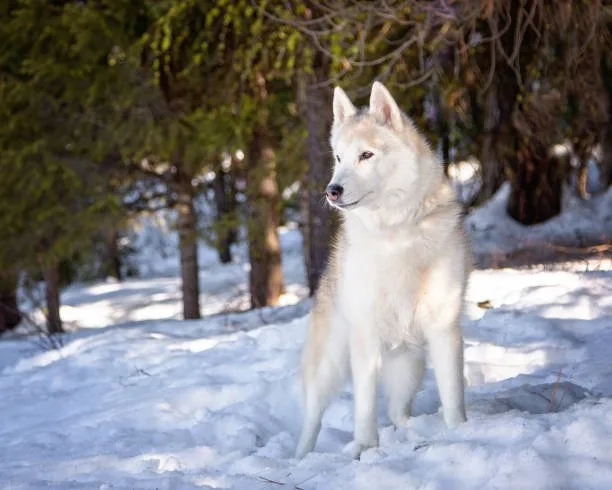
Dealing with Dietary Sensitivities and Allergies
Husky puppies, like all dogs, can develop dietary sensitivities and allergies that require careful management. It’s important to be observant and watch for symptoms that may indicate a negative reaction to certain foods.
Common signs of food sensitivities or allergies in husky puppies can include itching, excessive licking, ear infections, gastrointestinal issues, and skin rashes. If you notice any of these symptoms, it’s crucial to consult with a veterinarian to determine the cause and make necessary adjustments to the pup’s diet.
In some cases, dietary adjustments may involve switching to a hypoallergenic or limited ingredient dog food formula that excludes common allergens such as grains, dairy, or certain proteins.
Carefully introducing new foods and monitoring the pup’s response can help pinpoint the specific triggers for their sensitivities. Additionally, incorporating supplements like omega-3 fatty acids or probiotics may provide relief for certain allergies or sensitivities by supporting the pup’s immune system and digestive health.
Reddit What do husky puppies eat
Remember, identifying and managing dietary sensitivities and allergies in husky puppies requires patience and close attention to their well-being.
Making the necessary dietary adjustments can greatly improve the pup’s comfort and overall health, allowing them to thrive without the discomfort of allergic reactions.
To explore the unique behaviors of these dogs further, such as their characteristic vocalizations, dive into our detailed examination on husky communication. Uncover the reasons behind your husky's howls by reading our insightful article, "Deciphering the Husky Howl: Communication or Call of the Wild?".
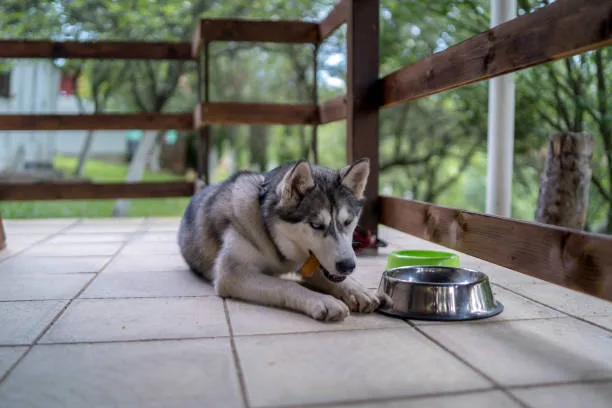
Common Feeding Mistakes to Avoid
American Kennel Club: What do husky puppies eat
Many husky puppy owners unknowingly make feeding mistakes that can impact their pet’s health. Offering table scraps as part of their diet can lead to nutritional imbalances and digestive issues.
It’s important to provide a balanced diet that fulfills their nutritional needs. Neglecting vet advice on dietary requirements and portion sizes can also hinder a husky puppy’s growth and development.
To avoid these pitfalls, it’s crucial to follow professional guidance and resist the temptation to deviate from their recommended diet and feeding regimen. Providing a consistent, balanced diet and seeking veterinary input when in doubt are key to ensuring a husky puppy’s overall well-being..
To ensure your furry friend's health doesn't get derailed by simple oversights, further educate yourself on proper pet care techniques. Explore our comprehensive guide on maintaining your Golden Retriever's dew claws, another crucial aspect of responsible dog ownership.
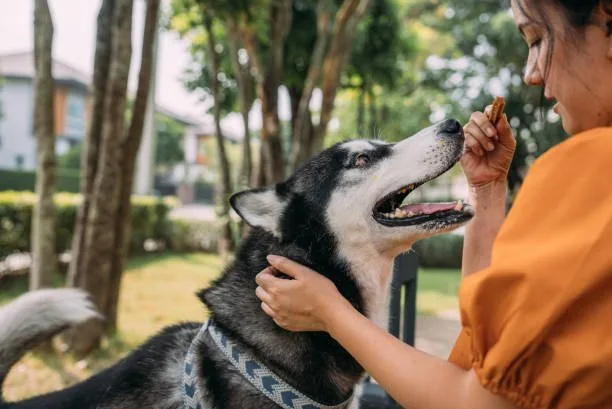
Crafting Balanced High-Energy Meals for Husky Pups
Husky puppies are known for their high energy levels, requiring a diet that caters to their active lifestyle. What do husky puppies eat to sustain this energy? High-quality animal proteins are essential for their muscle development and overall growth.
These can be sourced from proteins such as chicken, turkey, or salmon. Additionally, incorporating essential vitamins is crucial for supporting their immune system and overall well-being.
Omega-3 fatty acids play a key role in maintaining the lush coat health that Huskies are known for, making it an important component of their meals. Crafting balanced high-energy meals for Husky puppies involves a focus on nutrient-dense food that supports their growth milestones, providing the necessary fuel for their active lifestyle.
In summary, crafting balanced high-energy meals for Husky puppies involves incorporating high-quality animal proteins, essential vitamins, and Omega-3 fatty acids to support their growth and maintain their lush coat health.
To delve deeper into the essentials of a Husky puppy's diet and well-being, explore our comprehensive guide for an in-depth understanding. Venture beyond by visiting our comprehensive article on mythical dragons, illuminating another fascinating subject of vigor and mythology.
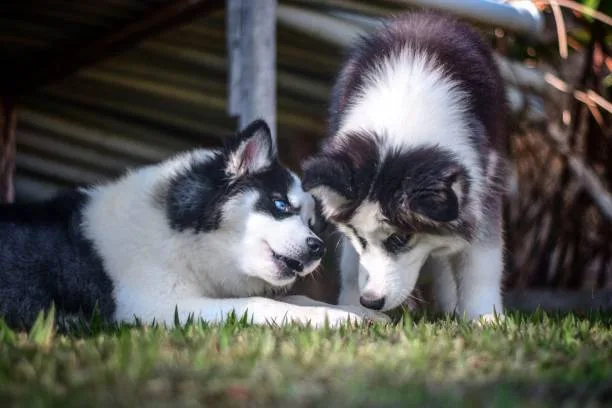
Customizing a Husky Puppy Feeding Regimen
Husky puppies have unique dietary needs that require a tailored feeding regimen to support their growth and development. Understanding the importance of a well-structured feeding schedule is key in ensuring they receive the necessary nutrients at each stage of their early life.
When considering what husky puppies eat, it’s vital to incorporate a feeding chart that factors in their age and size. This chart acts as a guide to determine the appropriate portion sizes and feeding frequency that align with their specific growth milestones.
Introducing husky puppies to solid food can be a gradual process, and integrating puppy milk during the weaning stage can help ensure they receive the essential nutrients for their development.
Monitoring their transition from milk to solid food is crucial, as it sets the foundation for their future dietary habits.
Furthermore, ensuring proper hydration is an integral part of a husky puppy’s feeding regimen. Providing access to fresh water at all times is essential, especially considering their active nature and high-energy requirements.
Portion control is another aspect to consider, as it plays a significant role in preventing overfeeding and maintaining a healthy weight for husky puppies.
By offering portion-controlled meals, you can help instill healthy eating habits from an early age.
Overall, customizing a feeding regimen for husky puppies involves a thoughtful approach that encompasses their unique nutritional needs, feeding frequency, portion control, weaning processes, and the fundamental role of proper hydration.

Navigating Puppy Food Choices: Kibble, Raw, and Homemade Diets
When it comes to selecting the best food for your husky puppy, there are several options to consider. Each type of diet has its own set of advantages and considerations that can impact your puppy’s well-being.
- Kibble: What do husky puppies eat when it comes to kibble? Commercial puppy kibble is convenient and provides balanced nutrition.
It’s important to choose high-quality, grain-free kibble to support your husky puppy’s health and energy needs.
- Raw Diet: Raw diets have gained popularity for their potential health benefits. Raw meat, bones, and organs can provide essential nutrients; however, it’s crucial to ensure safe handling and preparation to minimize the risk of bacterial contamination.
- Homemade Recipes: Some husky owners prefer preparing homemade meals to have better control over the ingredients.
This option allows for customization based on your puppy’s specific dietary requirements. However, it’s essential to consult with a veterinary nutritionist to ensure the homemade diet is nutritionally complete and balanced.
Ultimately, the best choice depends on your husky puppy’s individual needs, your lifestyle, and your ability to provide a well-rounded and nutritious diet.

Identifying and Managing Nutritional Health in Huskies
Huskies are prone to specific nutritional health issues that owners should be aware of to ensure their well-being. Allergies and sensitivities can arise due to certain ingredients in their diet, leading to digestive problems or skin issues.
It is crucial to monitor for any adverse reactions and work with a veterinarian to identify and eliminate potential allergens from their food. Additionally, signs of malnutrition or obesity should be carefully monitored in Husky puppies. Malnutrition can hinder their growth and development, while obesity can lead to various health complications.
By observing their body condition and consulting with a vet, owners can adjust their diet accordingly to maintain a healthy weight. When it comes to incorporating vegetables and human foods into a Husky’s diet, certain options are beneficial, while others can be harmful. Safe choices such as carrots and green beans can provide essential nutrients and fiber, but it’s vital to steer clear of toxic foods like onions, garlic, and grapes, which can be harmful to a Husky’s health. In summary, by staying vigilant for signs of allergies, monitoring their weight, and being mindful of the foods they consume, owners can effectively manage the nutritional health of their Husky puppies and support their overall well-being..
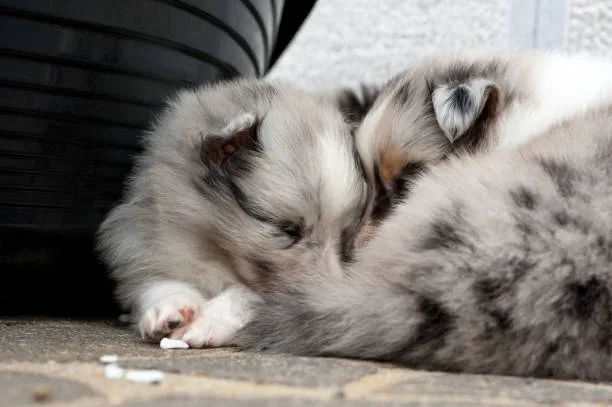
Developing a Strategic Transition Plan for Husky Puppies
Husky puppies require a strategic transition plan when shifting from puppy formulas to adult dog food. Recognizing the right time for this change is crucial, and it’s typically linked to the puppy’s growth milestones.
Keep an eye on signs of physical maturity and consult your vet to determine when the transition should occur. When the time is right, gradually introduce adult dog food into their diet by mixing it with the remaining puppy formula over the course of about a week.
This gradual transition helps to avoid digestive issues and allows the puppy to adapt to the new diet more comfortably. Additionally, consider incorporating healthy treats into their routine, but do so in moderation to prevent excessive weight gain.
Lastly, supplementation may be necessary during this period to ensure that the husky receives all the essential nutrients required for their development..
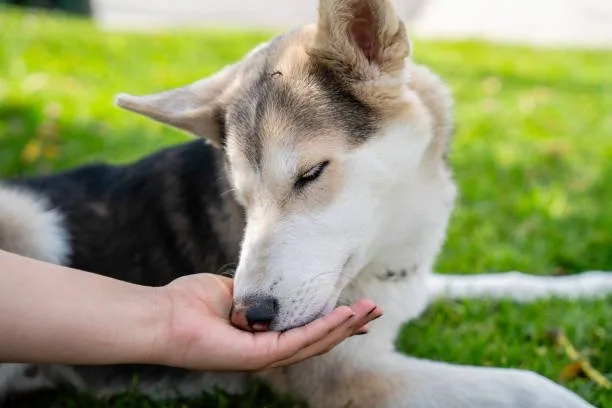
Conclusion: Ensuring a Healthy Start for Your Husky Pup
As husky puppy owners, it’s crucial to focus on providing a balanced and nutritious diet to ensure the best start for your pet. A healthy diet for husky puppies should consist of high-quality animal proteins, essential vitamins, and Omega-3 fatty acids to support their active lifestyle and maintain their lush coat health.
This means offering meals that are tailored to their high-energy needs, promoting growth milestones, and overall well-being.
Customizing a feeding regimen for your husky puppy involves creating a feeding schedule that aligns with their age and size. This includes integrating puppy milk during the weaning process and carefully controlling portion sizes to avoid overfeeding.
Proper hydration is also essential for the health and vitality of your husky pup.
In considering food choices for husky puppies, whether it’s kibble, raw, or homemade diets, it’s important to weigh the pros and cons of each option. Additionally, being mindful of potential dietary sensitivities or allergies your husky pup may have is crucial in maintaining their health.
Transitioning your husky puppy to adult dog food should be done strategically, considering their growth milestones and the inclusion of healthy treats while managing weight gain.
By following these guidelines and being attentive to your husky puppy’s nutritional needs, you can ensure they have a healthy and happy life.

Leave a Reply